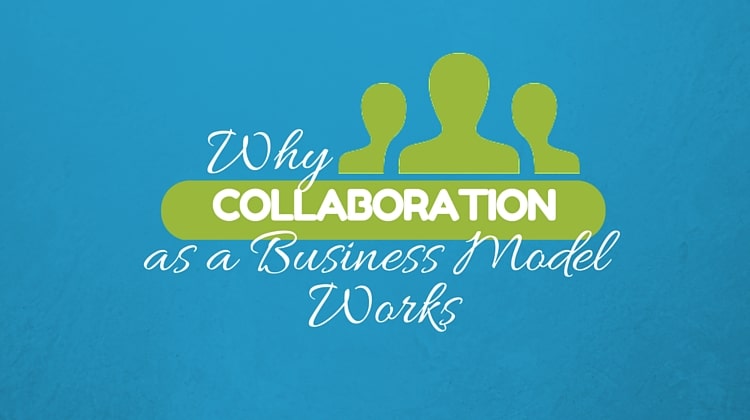Over the past few months, I have had a myriad of discussions around the concept of collaboration. It has come in many different forms, ranging from finding the right clients to how to create a startup community in my city. Interestingly enough, I had three conversations in one week about how “helping each other” was a necessary and vital part of the small business community. Though, the last conversation blew my mind—not because what was discussed was so innovative or a part of the next technological revolution. It was because it was so simple, important, and the most often overlooked aspect in small business.
Collaboration as business model. I know, right? Your mind is blown too! Collaboration by definition is the act of working with someone to produce or create something. We do this all the time. But what if your business model was not just the result of collaboration, but the act of collaboration?
Shelly Rice is the premier collaborator. I had the opportunity to talk to her for an hour and a half, and I was impressed and overwhelmed at the same time. She made me wonder what I had been doing with my life all of this time! Here are just a few of the nuggets that she shared with me.
I work for myself, but I have never worked by myself.
Shelly started her own business over 28 years ago. From the beginning, her mindset was to get people to work together. That is how she built and sold two businesses and how she created her current business. Making the point that there is more than enough business for everyone, she noted that the reason people struggle is because they are not willing to talk to one another. Her businesses are built to get people talking and working together.
At most networking events, you have a chance to tell people what you do and how they can send you more business. At Shelly’s events, you have a chance to tell people what you do and find out who you can work with to increase business for each of you. In fact, it is a requirement. If you are not willing to work with other people, her events are not for you. It is almost as if you are on the hunt for business partners more so than the clients.
Why compete when you can collaborate?
That is the question Shelly always asks. I admit, I really did not “get it.” She explained her business model in very simple terms. She creates events so that everyone can benefit, however, everyone has to contribute. For example, her Life Changing Conference’s mission is empowering women business owners. You can participate as a vendor or as a conference attendee. As a vendor, you pay to be a part of the conference, but you make your money back by selling tickets to the event. I have been to many events where I have had to pay to be a part of the event and have never had the chance to earn my money back before the event. Usually, you have to hope that you can sell enough product or services through the event itself or just consider it part of your marketing budget with some long range goal in mind.
As a vendor, you have to be committed to not only selling your tickets but making sure people attend. Why? Because it is a collaborative event. It is in everyone’s best interest to have the event full with the type of people that they want to do business with. That means that you have to work just as hard to ensure that it is a great event as she does. In reality, you are one of many conference hosts and you have a responsibility to make sure the conference is a success. This is collaboration at its best. No one wins unless everyone wins.
You have to be open.
Collaboration is one of those “it” words that have been floating around for the past few years. Foundations understand that for their grant dollars to go further, nonprofit organizations must collaborate to have more impact. In the education community, administers know that the problems and issues facing learning are so vast and so wide that collaboration is necessary to have any real and lasting impact. In the small business world, collaboration has been more niche—something reserved to tech startups and business incubators funded by venture capitalists. In some circles, collaboration is a foreign word that means helping the competition.
The belief that everyone should collaborate is not as widespread in the small business community as one would think. People say they want to collaborate, but what they really mean is that they want what you can provide without giving anything themselves. But that is not collaboration. Collaboration by its very nature requires you to be honest about your strengths and weaknesses and forces you to reduce the conversation about yourself and make it about everyone. It is a “rising tides lifts all boats” mentality. Creating a business model that ensures that the tides rise is what makes Shelly’s business model so inspiring.
In the interest of journalistic integrity, I must admit that I am a believer in this concept and have fully bought into the idea of collaboration. What I did not know was that there are some people that are so skilled and gifted in collaboration that they were able create a business model that could help the masses and not just the select few. What if collaboration was not just about creating the next innovation in human evolution but was also about women coming together to increase business for themselves and everyone they come in contact with?



No comments:
Post a Comment